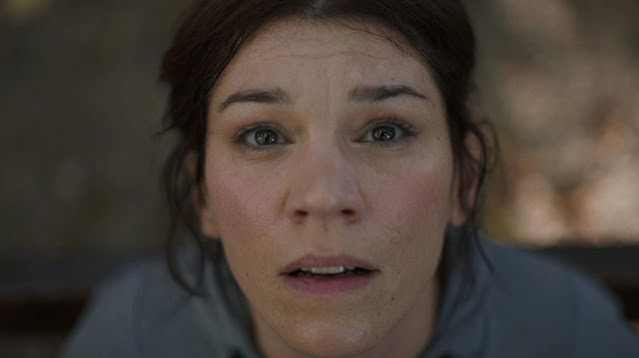previously published on Cineuropa
First-world problems are still problems. That sense of (impending) loss and loneliness becoming the predominant feeling in life is always the same, whether the one experiencing it is a well-off person with a comfortable existence, or quite the opposite. Sometimes, an obsession with something that could be seen as primitive or divine could, at the same time, serve as the one and only force driving life forward. This is the case with Traces, the feature-length directorial debut by Dubravka Turić, known for her editing jobs on Zvonimir Jurić’s The Reaper and Danilo Šerbedžija’s Tereza37, as well as for the short films she has written and directed, with the Cannes title Cherries (2017) being the highlight.
Traces world-premiered in the Warsaw Film Festival’s 1-2 Competition, while its screening in the main competition of the Zagreb Film Festival marks its national premiere. With some festival bookings already made, this Croatian-Serbian-Lithuanian co-production could become a regular dish on the menu of smaller gatherings scattered over the first half of next year.
The protagonist, Ana (Marija Škaričić, of Mare fame), suffers from an autoimmune skin disease that leaves discolouration marks on her face and hands, which she hides under layers of make-up. Otherwise, Ana is a doctor of anthropology with a job at a state institute, and is embarking on a book project about local burial customs. She is especially interested in so-called Mirila, meaning “measuring”, a custom in which a measurement of the deceased is taken using two stones, one at the head and one at the feet, with the headstone then decorated with personal symbols.
Naturally, she spends most of her work time in darkened rooms and archives, and in her own free time, there is no brightness either. She spends it in a huge, dimly lit apartment in central Zagreb with her ailing father (Mate Gulin) and rarely goes out with her friends (Lana Barić and Marina Redžepović, among others), whose topics of conversation revolve around the same immature stuff year after year. Once her father dies, Ana has to confront herself, her loneliness, her feelings, her prolonged grief and her obsessions with the symbols from the gravestones that she seems to see everywhere. Maybe a trip to her father’s village, the place of her happier childhood memories, and a chance encounter with a childhood friend of hers, Jozo (Nikša Butijer, spot on), could help her clear her mind and restart her life.
Škaričić is perfectly cast for the role, possessing an aura that can transform her from a quiet, lonely person dealing with her pain on her own into a more loosened-up and joyful character. The more jovial presence of Nikša Butijer as Jozo and the selection of actresses playing her friends complement her restrained performance perfectly. Since Ana spends most of her time on her own, the dialogue is not necessarily the key ingredient of the film, so Turić relies heavily on the pure audiovisual components, such as the use of light in the cinematography handled by Damjan Radovanović (who lensed Miroslav Terzić’s Stitches and Vuk Ršumović’s No One’s Child), the evocative musical score by Jonas Jurkunas, mostly on piano with a synth drone, and the sound design of Dubravka Premar.
Turić handled the editing on her own, so she keeps complete control over the film and its mood, and one of the gems in that department is a faux 1980s-style TV documentary woven into Ana’s research. The only potential problem with the film is its very loose structure with an arbitrary ending (the feature could be shorter or longer, but have exactly the same effect), but all in all, Traces is a compelling mood piece.

No comments:
Post a Comment